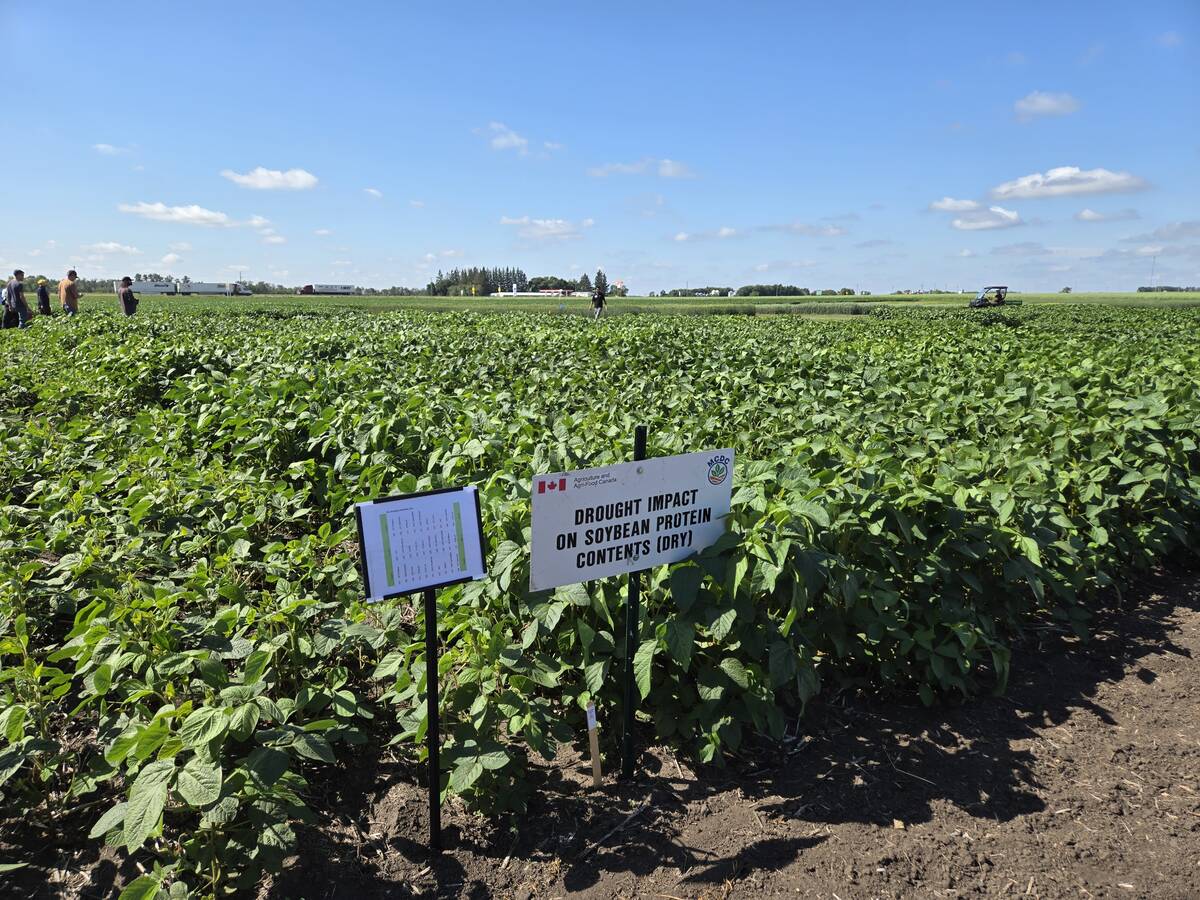A $7 billion class action lawsuit against the federal government and a multinational feed manufacturer has been filed in Alberta, Saskatchewan, Ontario and Quebec.
A team of lawyers from the four provinces is handling the case. The lawyers say the government did not ban ruminant meat and bone meal from cattle feed soon enough. Both can potentially transmit BSE.
The lawyers say this caused Canada’s BSE crisis and led to loss of incomes for Canadian cattle producers after Canadian cattle and beef trade was stopped in May 2003 when the first case of three was announced. Beef from animals younger than 30 months have since been allowed into the U.S. but Canadian cattle remained banned from the U.S. and most other countries.
Read Also

Carberry field day looks for agriculture solutions
Manitoba farmers explored research solutions for resilient crops, perpetual agronomic issues and new kinds of agricultural products at a field day at the Manitoba Crop Diversification Centre in Carberry on Aug. 6.
Feed manufacturer Ridley Inc. was named as negligent in manufacturing the feed and not warning purchasers of potential risk even though the parent company, Ridley Australia ceased using the material in 1996 because of concerns over possible infection.
A statement from Ridley on April 6 said it is taking the situation seriously and monitoring court documents.
Rancher Larry Sears of Stavely, Alta., is one of five representative plaintiffs across the country.
“If it is accepted as a bonafide class action, it would be on behalf of 100,000 cattle producers in the country,” Sears said.
The $7 billion claim in losses could rise because the U.S. border remains closed to live cattle.
“There’s going to have to be a lot of work by economists to establish exactly what the situation is and what the hardship endured has been,” Sears said in an interview April 11.
He is not concerned that the U.S. group R-CALF could use this new case as further evidence in its own lawsuit to keep the U.S. border closed to Canadian cattle.
“This is not new information to anyone. It just articulates the story as it transpired here and in the United States,” he said.
However, Wayne Easter, parliamentary secretary to agriculture minister Andy Mitchell, said the allegations in the court documents will be read in the United States as fact rather than accusations.
He said it could be used by R-CALF and other opponents of an open border as a reason to keep the cattle trade stymied.
“This is putting Canada in a bad light and I wonder if this is really what the producers involved in this lawsuit wanted. They claim to represent many, but very few are directly involved. I wonder if all those they claim to speak for would think this was a good tactic.”
Easter said the Canadian food inspection system is safe and the allegations relate to a period before government rules on animal feed and removal of specified risk materials were changed.
Mitchell was unavailable for comment April 11. Press aide Elizabeth Whiting said government lawyers were studying the court documents.
The documents explain how Canada banned live cattle imports from the United Kingdom and Ireland in 1990 because of the BSE threat. There were 191 imports between 1982-90 and the brief claims 80 cattle were unaccounted for. They were likely rendered and formulated into protein supplement. The remaining cattle were placed in a monitoring program.
The brief said it is reasonable to assume government officials knew in 1990 that feeding infected meat and bone meal to cattle could result in transmission of BSE to Canadian cattle.
The brief further claims the most likely source of BSE was a calf starter produced at a Feed Rite mill in St. Paul, Alta. If not for the government’s negligence, said the brief, the mill could not have added ruminant meat and bone meal to rations, a practice that continued until a feed ban was passed in August 1997.
A Canadian Food Inspection Agency official disputes information in the briefs.
Veterinarian Gary Little said of the 191 British imports Agriculture Canada found, 68 had already died either of natural causes or were slaughtered. The rest were monitored.
The 68 animals were traced to their premises of origin in Britain through export certificates. It was learned 10 of the 68 came from farms infected with at least one case of BSE after the cattle were exported to Canada.
“We’ve always recognized the most logical and reasonable source of BSE in North America was from cattle we imported live from the U.K.,” Little said.
“At the time nobody knew how big an issue (BSE) was going to be.”















